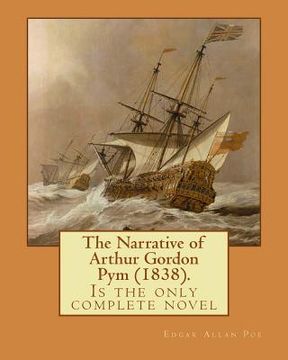Edgar Allan Poe (Boston, Estados Unidos, 19 de enero de 1809-Baltimore, Estados Unidos, 7 de octubre de 1849) fue un escritor, poeta, crítico y periodista romántico estadounidense, generalmente reconocido como uno de los maestros universales del relato corto, del cual fue uno de los primeros practicantes en su país. Fue renovador de la novela gótica, recordado especialmente por sus cuentos de terror. Considerado el inventor del relato detectivesco, contribuyó asimismo con varias obras al género emergente de la ciencia ficción. Por otra parte, fue el primer escritor estadounidense de renombre que intentó hacer de la escritura su modus vivendi, lo que tuvo para él lamentables consecuencias.
Fue bautizado como Edgar Poe en Boston, Massachusetts, y sus padres murieron cuando era niño. Fue recogido por un matrimonio adinerado de Richmond, Virginia, Frances y John Allan, aunque nunca fue adoptado oficialmente. Pasó un curso académico en la Universidad de Virginia y posteriormente se enroló, también por breve tiempo, en el ejército. Sus relaciones con los Allan se rompieron en esa época, debido a las continuas desavenencias con su padrastro, quien a menudo desoyó sus peticiones de ayuda y acabó desheredándolo. Su carrera literaria se inició con un libro de poemas, Tamerlane and Other Poems (1827).
La figura del escritor, tanto como su obra, marcó profundamente la literatura de su país y puede decirse que de todo el mundo. Ejerció gran influencia en la literatura simbolista francesa y, a través de esta, en el surrealismo, pero su impronta llega mucho más lejos: son deudores suyos toda la literatura de fantasmas victoriana y, en mayor o menor medida, autores tan dispares e importantes como Charles Baudelaire, Fedor Dostoyevski, William Faulkner, Franz Kafka, H. P. Lovecraft, Arthur Conan Doyle, M. R. James, Ambrose Bierce, Guy de Maupassant, Thomas Mann, Jorge Luis Borges, Clemente Palma, Julio Cortázar, quien tradujo casi todos sus textos en prosa y escribió extensamente sobre su vida y obra, etc. El poeta nicaragüense Rubén Darío le dedicó un ensayo en su libro Los raros.
Ver más
Ver menos

